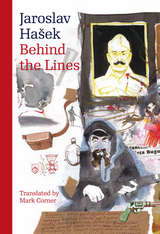
Jaroslav Hašek is a Czech writer most famous for his wickedly funny, widely read, yet incomplete novel The Good Soldier Schweik, a series of absurdist vignettes about a recalcitrant WWI soldier. Hašek—in spite of a life of buffoonery and debauchery—was remarkably prolific. He wrote hundreds of short stories that all display both his extraordinary gift for satire and his profound distrust of authority. Behind the Lines presents a series of nine short stories first published in the Prague Tribune and considered to be some of Hašek’s best. Based on his experiences as a Red Commissar in the Russian Civil War and his return to Czechoslovakia, Behind the Lines focuses on the Russian town of Bugulma, taking aim, with mordant wit, at the absurdities of a revolution.
Providing important background and insight into The Good Soldier Schweik, this collection by a writer some call the Bolshevik Mark Twain is nevertheless much more than a tool for understanding his better-known novel; it is a significant work in its own right. A hidden gem remarkable for its modern, ribald sense of humor, Behind the Lines is an enjoyable, fast-paced anthology of great literary and historical value.
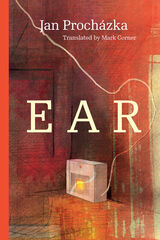
A deputy minister in the Communist Party of Czechoslovakia, Ludvík enjoys all the luxuries that success in the party affords him, but he must be careful: he’s under no illusions about the secret police bugging his apartment. Luckily, he and his wife, Anna, know where the bug is and where they can safely converse. However, any comfort they feel disappears the evening they attend an official party, where they learn that Ludvík’s boss has just been arrested after presenting a report written by Ludvík himself. Is Ludvík next? Back home after the party, the couple must get past unresolved marital tensions to get rid of absolutely anything that could incriminate them—all while contending with the strange men outside their apartment and the bug inside.
Penned under the oppressive watch of Soviet authorities in 1960s Czechoslovakia—but touching on still-current themes of surveillance and paranoia—this cinematic thriller is as tense and timely as ever. A promising Party member who became persona non grata after the Soviet occupation of Czechoslovakia, author Jan Procházka knew firsthand the gnawing terror of life in a surveillance state: after his death in 1971, the new tenants of his apartment discovered twelve hidden listening devices. As Ear makes terrifyingly clear, the most frightening horror stories are the ones closest to everyday reality.
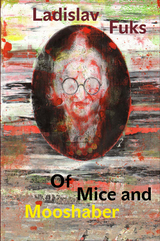
Written before the occupation of Czechoslovakia in 1968 but not published until 1970, Of Mice and Mooshaber is Fuks’s first novel. The story takes place in an unspecified country in which the ruler has been overthrown and replaced by a dictator. The main protagonist, Mrs. Mooshaber, is an old widow whose husband was a coachman in a brewery. Her life revolves around her job as a caretaker for troublesome children, her own ungrateful children, and her fear of mice, which she tries to catch in traps. Blending elements of the grotesque with the fantastic, Fuks’s novel of heartbreaking tragedy speaks to the evil that can be found within the human soul.
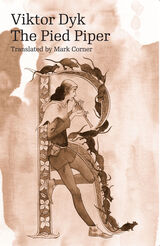
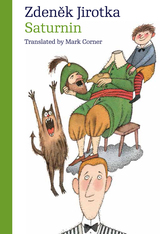
On its initial publication in Czech in 1942, Saturnin was a best seller, its gentle satire offering an unexpected—if temporary—reprieve from the grim reality of the German occupation. In the years since, the novel has been hailed as a classic of Czech literature, and this translation makes it available to English-language readers for the first time—which is entirely appropriate, for author Zdeněk Jirotka clearly modeled his light comedy on the English masters Jerome K. Jerome and P. G. Wodehouse. The novel’s main character, Saturnin, a “gentleman’s gentleman” who obviously owes a debt to Wodehouse’s beloved Jeeves, wages a constant battle to protect his master from romantic disaster and intrusive relatives, such as Aunt Catherine, the “Prancing Dictionary of Slavic Proverbs.” Saturnin will warm the heart of any fan of literary comedy.

On its initial publication in Czech in 1942, Saturnin was a best seller, its gentle satire offering an unexpected—if temporary—reprieve from the grim reality of the German occupation. In the years since, the novel has been hailed as a classic of Czech literature, and this translation makes it available to English-language readers for the first time—which is entirely appropriate, for author Zdeněk Jirotka clearly modeled his light comedy on the English masters Jerome K. Jerome and P. G. Wodehouse. The novel’s main character, Saturnin, a “gentleman’s gentleman” who obviously owes a debt to Wodehouse’s beloved Jeeves, wages a constant battle to protect his master from romantic disaster and intrusive relatives, such as Aunt Catherine, the “Prancing Dictionary of Slavic Proverbs.” Saturnin will warm the heart of any fan of literary comedy.
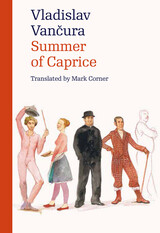
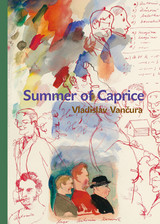
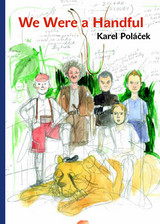
A favorite work of Czech humor, We Were a Handful depicts the adventures of five boys from a small Czech town through the diary of Petr Bajza, the grocer’s son. Written by Karel Poláček at the height of World War II before his deportation to Auschwitz in 1944, this book draws on the happier years of Poláček’s own childhood as inspiration. As we look upon the world through Petr’s eyes, we, too, marvel at the incomprehensible world of grownups; join in fights between gangs of neighborhood kids; and laugh at the charming language of boys, a major source of the book’s humor. This translation at last offers English-language readers the opportunity to share in Petr’s (and Poláček’s) childhood and reminds us that joy and laughter are possible even in the darkest times.
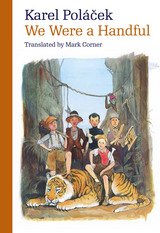
A favorite work of Czech humor, We Were a Handful depicts the adventures of five boys from a small Czech town through the diary of Petr Bajza, the grocer’s son. Written by Karel Poláček at the height of World War II before his deportation to Auschwitz in 1944, this book draws on the happier years of Poláček’s own childhood as inspiration. As we look upon the world through Petr’s eyes, we, too, marvel at the incomprehensible world of grownups; join in fights between gangs of neighborhood kids; and laugh at the charming language of boys, a major source of the book’s humor. This translation at last offers English-language readers the opportunity to share in Petr’s (and Poláček’s) childhood and reminds us that joy and laughter are possible even in the darkest times.
READERS
Browse our collection.
PUBLISHERS
See BiblioVault's publisher services.
STUDENT SERVICES
Files for college accessibility offices.
UChicago Accessibility Resources
home | accessibility | search | about | contact us
BiblioVault ® 2001 - 2024
The University of Chicago Press









